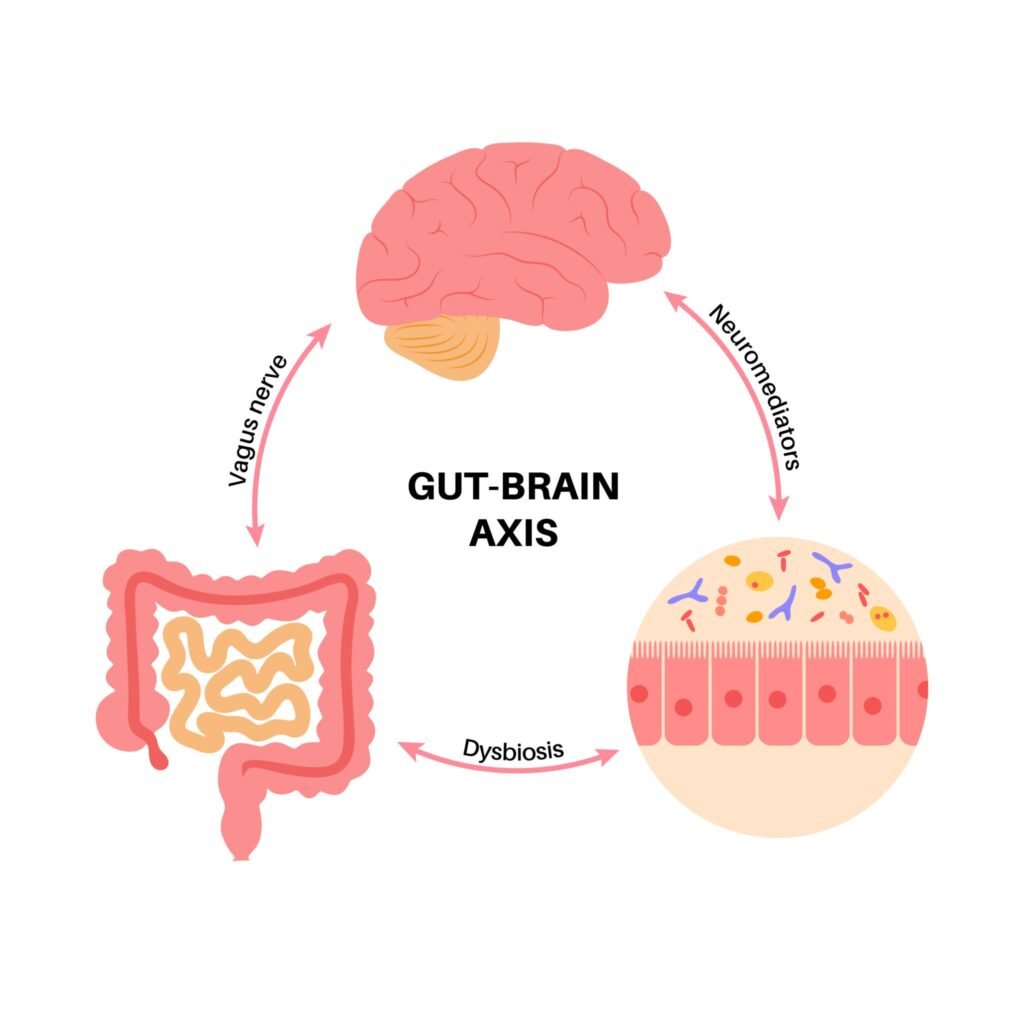We often talk about mental health and physical health as if they’re two separate projects. You might track your daily steps or count your macros, while treating stress or anxiety as an entirely different battle. But what if the wall between them is an illusion? What if your mind and body are in a constant, dynamic conversation, influencing each other with every thought you have and every action you take?
This isn’t just a philosophical idea; it’s a biological reality. A truly healthy life encompasses both a sound mind and a vibrant body. Ignoring one at the expense of the other is like trying to drive a car with only two wheels – you might lurch forward, but you’ll never move with power, grace, or efficiency.
This comprehensive guide will illuminate the profound connection between your mental and physical health. We’ll explore the science of how your thoughts and feelings directly impact your body’s systems, and conversely, how simple acts of physical self-care can fundamentally change your brain chemistry for the better. Understanding this unbreakable bond is the first step toward building a life of true holistic well-being.

Table of Contents
## The Two Sides of the Same Coin: Understanding the Interplay
Your body is not just a vehicle for your brain; it’s an integrated system. The brain, nervous system, immune system, and endocrine (hormonal) system are all in constant communication. This means a disturbance in one area will inevitably ripple out and affect the others.
### How Your Mental State Directly Impacts Your Physical Body
Stress, anxiety, and sadness aren’t just abstract feelings. They trigger powerful physiological responses. When this emotional state becomes chronic, it can manifest as very real, tangible physical ailments.
- The Stress-Body Connection: When you perceive a threat—whether it’s a looming deadline or a difficult conversation—your brain’s hypothalamus initiates an alarm system. This prompts your adrenal glands to release a surge of hormones, including adrenaline and cortisol. This “fight or flight” response is a survival mechanism, but when it’s activated day after day, the consequences are severe. Chronic stress has been linked to:
- Cardiovascular Damage: Persistently high levels of cortisol can lead to elevated blood pressure, cholesterol, and triglycerides, which are all common risk factors for heart disease and stroke.
- A Compromised Immune System: The new and fascinating field of psychoneuroimmunology studies exactly this: how your psychological processes affect your nervous and immune systems. Chronic stress can suppress immune function, leaving you more vulnerable to everything from the common cold to more serious infections.
- Digestive Chaos: The “gut-brain axis” is a direct, two-way communication line between your brain and your digestive system. Stress can disrupt the delicate balance of your gut microbiome, leading to inflammation and conditions like irritable bowel syndrome (IBS), gastritis, and ulcers.
- Chronic Pain: Stress causes muscles to tense up. Over time, this chronic tension can lead to debilitating headaches, migraines, and musculoskeletal pain in the back, neck, and shoulders.
- Sleep Disruption: Cortisol should naturally be low at night to allow for rest. Chronic stress keeps it elevated, leading to insomnia or poor-quality sleep, which in turn creates a vicious cycle of fatigue and heightened stress the next day.

- The Weight of Negative Emotions: Persistent feelings of sadness or hopelessness, characteristic of depression, also have a physical footprint. Depression is associated with increased inflammation throughout the body, which can contribute to chronic pain and fatigue. It also significantly alters appetite and sleep patterns, further impacting physical health.
- The Domino Effect of Lifestyle Choices: Beyond the direct biological impact, mental distress influences your behaviors. When you feel down or overwhelmed, your motivation to care for yourself plummets. You might be more likely to:
- Crave and consume high-sugar, high-fat comfort foods.
- Abandon your exercise routine.
- Use alcohol or other substances as coping mechanisms.
- Withdraw from friends and family, robbing yourself of crucial social support.
### How Your Physical Health Bolsters Your Mental Well-being
Fortunately, this connection is a two-way street. By taking deliberate care of your physical body, you can create a powerful foundation for mental and emotional resilience.
- The Power of Exercise: Physical activity is one of the most effective antidepressants and anti-anxiety treatments available.
- The Chemistry of Calm: Exercise releases endorphins, your body’s natural mood elevators and pain relievers. It also boosts levels of key neurotransmitters like serotonin, dopamine, and norepinephrine, which are often depleted during periods of depression.
- Building a Better Brain: Aerobic exercise, like brisk walking, running, or cycling, has been shown to promote neurogenesis—the creation of new brain cells—particularly in the hippocampus, a region vital for learning and memory that often shrinks in people with depression. Meanwhile, anaerobic exercise, like weightlifting, can build self-esteem, improve body image, and provide an outlet for frustration.
- The Importance of Brain-Boosting Nutrition: The food you eat is the raw material for your brain. A balanced, nutrient-dense diet is essential for optimal brain function and mood regulation.
- Key Nutrients for Your Mind:
- Omega-3 Fatty Acids: Found in fatty fish (salmon, mackerel), walnuts, and flaxseeds, these are crucial for building brain cell membranes and have potent anti-inflammatory effects.
- B Vitamins (especially B12 and B9/Folate): Found in leafy greens, eggs, and legumes, they play a vital role in producing the neurotransmitters that regulate mood.
- Tryptophan: An amino acid found in foods like turkey, nuts, and seeds, it’s a direct precursor to serotonin, the “feel-good” chemical.
- Magnesium: Found in dark chocolate, almonds, and avocados, this mineral helps regulate the body’s stress-response system. A deficiency is often linked to increased anxiety.
- Key Nutrients for Your Mind:
- The Restorative Benefits of Sleep: Sleep is not a luxury; it’s a non-negotiable pillar of health. During deep sleep, your brain works hard to process emotions, consolidate memories, and clear out metabolic waste products that accumulate during the day. A single night of poor sleep can impair judgment, increase emotional reactivity, and heighten feelings of anxiety.
- The Mind-Body Connection in Practice: Disciplines like yoga, tai chi, and meditation are designed specifically to integrate the mind and body. They combine physical postures, breathing techniques, and mindfulness to reduce the physiological markers of stress, improve focus, and cultivate a profound sense of inner calm.
## Nurturing the Connection: Practical Strategies for Holistic Well-being
Knowing the science is one thing; living it is another. Here are practical strategies to incorporate into your daily life to nurture this vital mind-body connection.
### Integrate Movement You Enjoy
- Find Your Joy: The best exercise is the one you’ll actually do. If you hate running, don’t force it. Explore dancing, hiking, team sports, swimming, or rock climbing.
- Start Small, Stay Consistent: If you’re new to exercise, aim for a 15-minute walk each day. The goal is to build a sustainable habit, not to burn yourself out. Consistency is far more important than intensity.
- “Snack” on Movement: Can’t fit in a 30-minute workout? Break it up. Take a 10-minute walk after each meal. Do squats while waiting for your coffee to brew. Every little bit counts.
### Fuel Your Body and Mind with Intention
- Eat the Rainbow: Aim to fill your plate with a variety of colorful fruits and vegetables to ensure you’re getting a wide range of vitamins and antioxidants.
- Prioritize Protein and Healthy Fats: Including these in every meal helps stabilize blood sugar, which in turn stabilizes your mood and energy levels.
- Hydrate Relentlessly: Even mild dehydration can cause brain fog, fatigue, and irritability. Keep a water bottle with you at all times.
- Practice Mindful Eating: Pay attention to the taste, texture, and smell of your food. Eat slowly and without distractions. This improves digestion and helps you recognize your body’s true hunger and fullness signals.
### Make Sleep a Sacred Priority
- Stick to a Schedule: Go to bed and wake up around the same time every day, even on weekends. This helps regulate your body’s internal clock, or circadian rhythm.
- Create a “Power-Down” Hour: An hour before bed, turn off all screens. The blue light suppresses melatonin, the hormone that makes you sleepy. Instead, read a physical book, listen to calm music, or take a warm bath.
- Optimize Your Environment: Your bedroom should be a sanctuary for sleep: cool, dark, and quiet.
### Practice Active Relaxation and Mindfulness
- Master Deep Breathing: When you feel anxious, your breathing becomes shallow. Counteract this by practicing diaphragmatic breathing: inhale slowly through your nose for a count of four, hold for four, and exhale slowly through your mouth for a count of six.
- Try a 3-Minute Body Scan:
- Sit comfortably in a chair with your feet flat on the floor. Close your eyes.
- Bring your awareness to the physical sensation of your feet on the ground.
- Slowly, move your attention up your body—to your legs, your torso, your arms, your neck, and finally your head. Simply notice any sensations (warmth, tension, tingling) without judgment. This practice grounds you in the present moment.
### Cultivate Deep and Meaningful Social Connections
- Schedule Social Time: In a busy world, friendships need intention. Schedule regular calls, video chats, or in-person meetups. Put them in your calendar like any other important appointment.
- Find Your Tribe: Join a club, class, or volunteer group centered around a hobby you love. Shared interests are a powerful foundation for new friendships.
- Practice Active Listening: When you’re with someone, put your phone away and give them your full attention. Being truly present for others is one of the greatest gifts you can give, and it deepens your own sense of connection.
Embrace the Interconnectedness for a Flourishing Life
Your mental and physical health are not separate projects to be managed; they are two parts of one whole, beautiful system: you. When you nourish one, you invariably uplift the other. Every healthy meal is a gift to your mind. Every moment of mindfulness is a gift to your body.
By adopting a holistic approach that honors this powerful connection, you unlock the door to a more vibrant, resilient, and joyful life. Start small. Choose one strategy from this guide that resonates with you and commit to it for one week. Be patient and compassionate with yourself. Remember that investing in your total well-being is the most profound act of self-care there is.
Your Next Step Towards Holistic Health
Which aspect of the mind-body connection do you plan to focus on this week? Will it be nutrition, movement, sleep, or mindfulness? Share your commitment in the comments below!